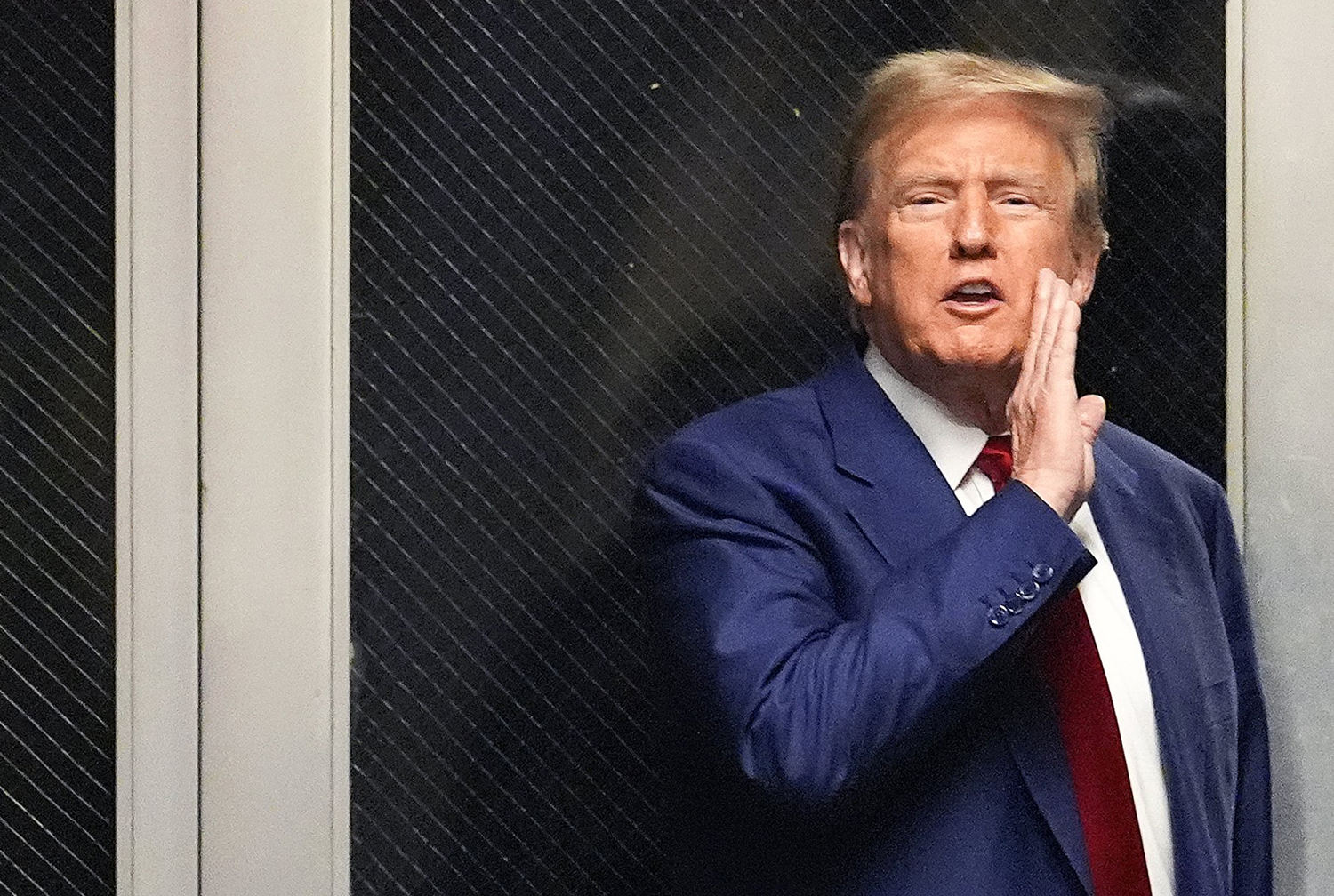Trump’s hush money trial begins Monday. Here’s what to expect.


Donald Trump will become the first former president to stand trial in a criminal case next week — and he’ll do so against the backdrop of a presidential campaign in which he’s the presumptive Republican nominee.
Jury selection begins Monday in New York City, and the trial is expected to last six to eight weeks.
Here’s a look at what you need to know and what’s expected to happen.
How long is jury selection expected to last?
Jury selection is expected to last one to two weeks. Starting Monday, prosecutors and lawyers for Trump will seek to whittle a pool of potentially hundreds of people to 12 jurors and six alternates. Each juror will answer 42 questions designed to discern whether they can be impartial about the polarizing former president. Questions include inquiries about what news sources they follow and whether they’ve ever attended any Trump rallies or protests. The jurors will be anonymous, meaning their identities will be withheld from the public because of security concerns.
A criminal trial involving Trump’s company before the same judge in 2022 took a week to select 12 jurors and five alternates.
What is Trump charged with?
Manhattan District Attorney Alvin Bragg charged Trump with 34 counts of first-degree falsifying business records, a low-level felony. Trump faces a maximum of four years behind bars if he’s convicted.
What is the prosecution alleging?
Prosecutors allege Trump “repeatedly and fraudulently falsified New York business records to conceal criminal conduct that hid damaging information from the voting public during the 2016 presidential election.”
At the heart of the case are allegations of various sex scandals that prosecutors say Trump tried to suppress with the help of his lawyer Michael Cohen and top executives in charge of the National Enquirer. In the final days of the election, Cohen paid $130,000 to one of the women, adult film star Stormy Daniels, to keep silent about her claim she’d had a sexual encounter with Trump in 2006. Trump has denied the allegation.
After he was elected, Trump reimbursed Cohen through a series of checks from his trust that were processed through the Trump Organization and labeled as payments “for legal services rendered” — a claim the DA says was false.
What is Trump’s defense?
Trump has maintained he didn’t do anything wrong, and while he has acknowledged reimbursing Cohen, he has said he didn’t know details about what Cohen was doing.
His lawyers are likely to target Cohen on the witness stand by painting him as a liar who loathes the former president and whose testimony shouldn’t be believed. They’re likely to be aggressive with Daniels, as well, and they’re expected to focus on comments she has made mocking Trump in an effort to portray her as biased and untrustworthy.
Who will testify for the prosecution?
Cohen, who says Trump directed him to make the payment to Daniels, is expected to be a key witness, as is Daniels. Trump’s attorneys sought to bar both from testifying, but Judge Juan Merchan gave both the green light to take the stand. Daniels’ former attorney Keith Davidson is likely to testify about his negotiations over the payment, a source with direct knowledge of the situation said.
Also expected to testify is Karen McDougal, a former Playboy model who said she had an affair with Trump, a claim he denies. She received money from the Enquirer to keep quiet about her allegations in what prosecutors said was part of a “catch and kill” scheme designed to keep a lid on potential Trump scandals.
David Pecker, a Trump ally who was the CEO of Enquirer publisher AMI at the time, is also expected to be called, the source said. Dylan Howard, another former AMI executive involved in the discussions with Trump and Cohen, may also testify.
Former White House communications director Hope Hicks — who prosecutors have said was involved in phone calls among Trump, Cohen and AMI — and former Trump assistant Madeleine Westerhout are also likely to take the stand, the source said.
Jurors are also expected to hear from Jeffrey McConney, the former controller for the Trump Organization, and Deborah Tarasoff, a former accounts payable supervisor at the company, the source said.
Who will testify in Trump’s defense?
Court filings show Trump plans to call Bradley A. Smith, a former Federal Election Committee chair who will testify about the FEC and its function, laws it’s responsible for enforcing and definitions and terms that relate to the case. The judge ruled he won’t be allowed to offer his opinion about whether Trump’s actions violated election law, as Trump had hoped he would.
There is a possibility Trump will testify because he’s the only person who can directly rebut some of Cohen’s claims.
Will Trump have to be in court every day?
Unlike the New York civil fraud and E. Jean Carroll defamation trials, the DA’s case is criminal, so Trump is required to be in court every day to participate in his defense. The trial is off on Wednesdays, but Trump will have to be in court for the four other days of the court week. The trial days are expected to last from 9:30 a.m. to 4:30 p.m.
Trump has suggested he might do campaign events at night after having attended court during the day.
How many jurors’ votes are needed for a conviction or an acquittal?
To reach a verdict, all 12 jurors must agree on whether Trump is guilty or not guilty of a specific charge.







